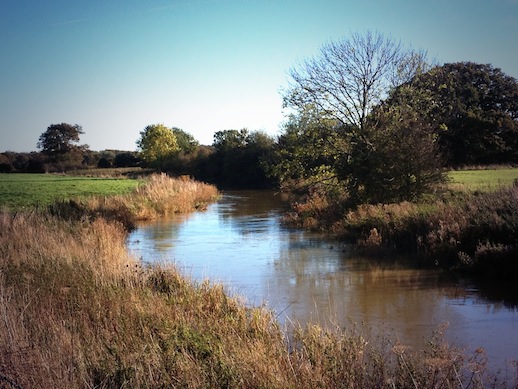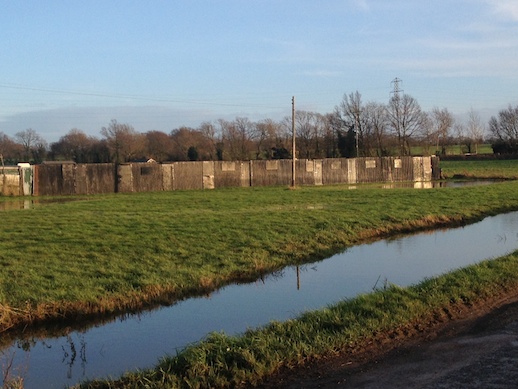Words and pictures: Phil Turner.
I can’t quite see the river from my house, but I know it’s always there. At the start of each day I look north from my bedroom window. And beyond the hoppers huts, across the water meadow, and before the ridge that carries the Greensand Way to Surrey, that’s where the river lies.
The river is the Beult, a Celtic name that probably meant ‘overflowing’. The Beult is known to flood and it’s overflowed many times this Winter, the clay soil of the Weald of Kent acting as a giant pond when the rain comes.
I live on the edge of the flood plain. I’m in the sixth of six Victorian farm workers cottages, built when the village of Chainhurst was no more than a collection of farms and the majority of its inhabitants workers on one of them.
The hoppers huts next to us housed the seasonal workers. Hundreds of families used to come on the night train from London Bridge to work in Kent in the summer. They would pick apples, cherries, blackcurrants and raspberries. But on this farm they would mostly pick hops.
The farmer who organised the families here was called Peter Tipples and hops was his passion. I only met him once, his carer driving him down the bridleway that passes our house, his Great Dane Splash in the back of the pick-up. I was working in the garden and he called me over. He wanted to say what he said to all the new folk that moved into the former farm buildings – the cottages or the converted oasts – that the farm was as much ours as his, and we should feel free to use it.
I remember his false teeth moved as he spoke. He became animated when I told him I was a writer. ‘I’m a writer too!’ he said, gripping the frame of the car door. I thought his teeth might fall out. Old man Tipples wrote a monthly column in South East Farmer, which I read from that day until his death in late 2012. The column always followed the same subject matter: the changing weather, meddling European bureaucrats, the fortunes of the English cricket team and the latest news on Splash.
The hop gardens on Reed Court Farm are gone now, but the hoppers huts remain: a row of corrugated iron shacks that mirrored the east London terraces that the families came from. A family of pickers would stay in the same hut each year. The hut was basic but it was their hut and they could decorate it as they chose. At the end of the huts was a cookhouse and the families would eat together and sit around an open fire in the evenings and they would wash their clothes in the river.
Now the farm is laid to mostly wheat and oilseed rape but the meadows by the river are left alone, as they should be. They say the water was crystal-clear when the hoppers were here. It isn’t now, but it’s clean enough to carry some good Tench, some monster Pike and even the odd Trout, though I haven’t caught one yet. But maybe this will be my year.
Phil is a writer, craft cider maker and beekeeper living in the Weald of Kent.

